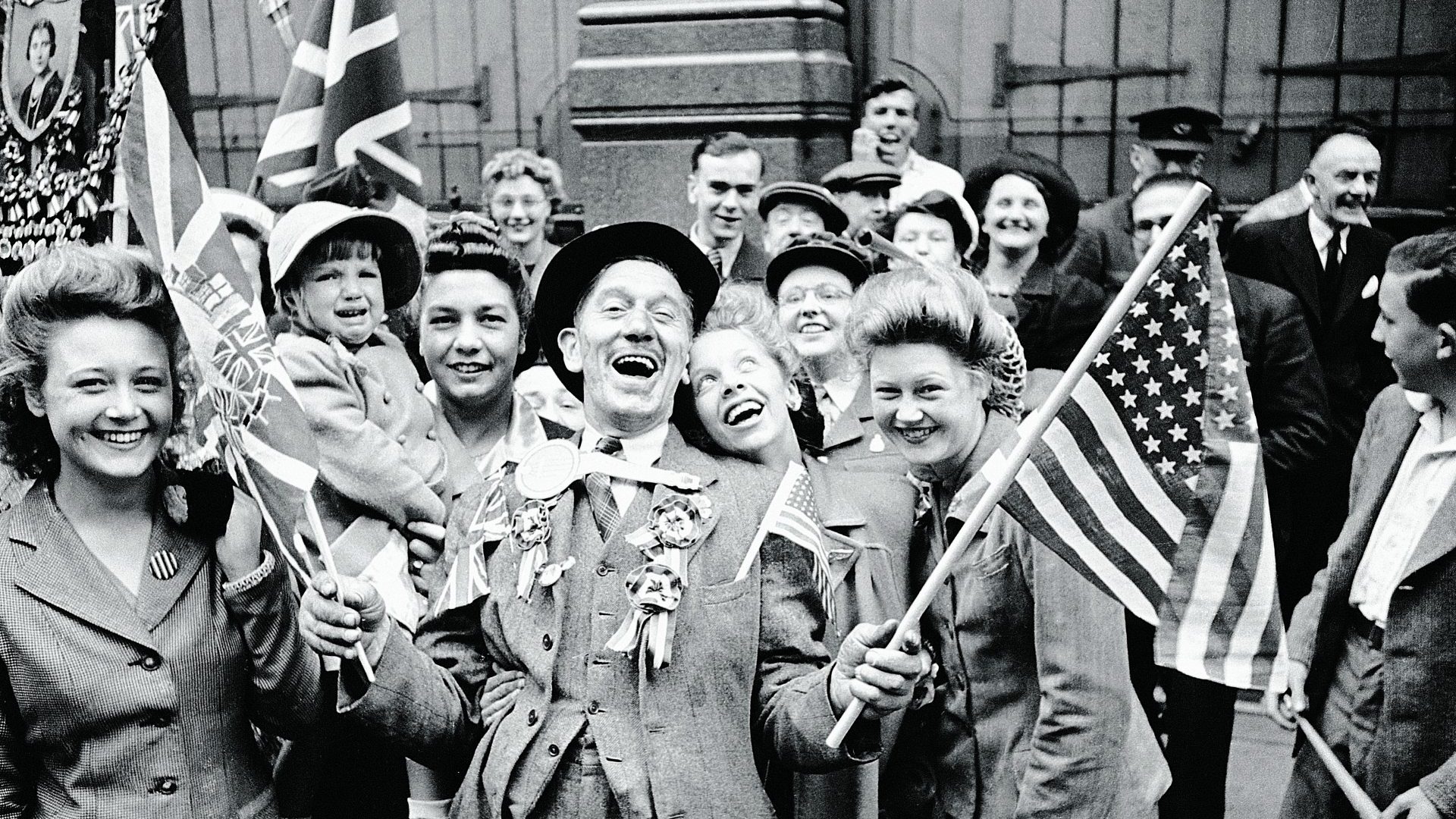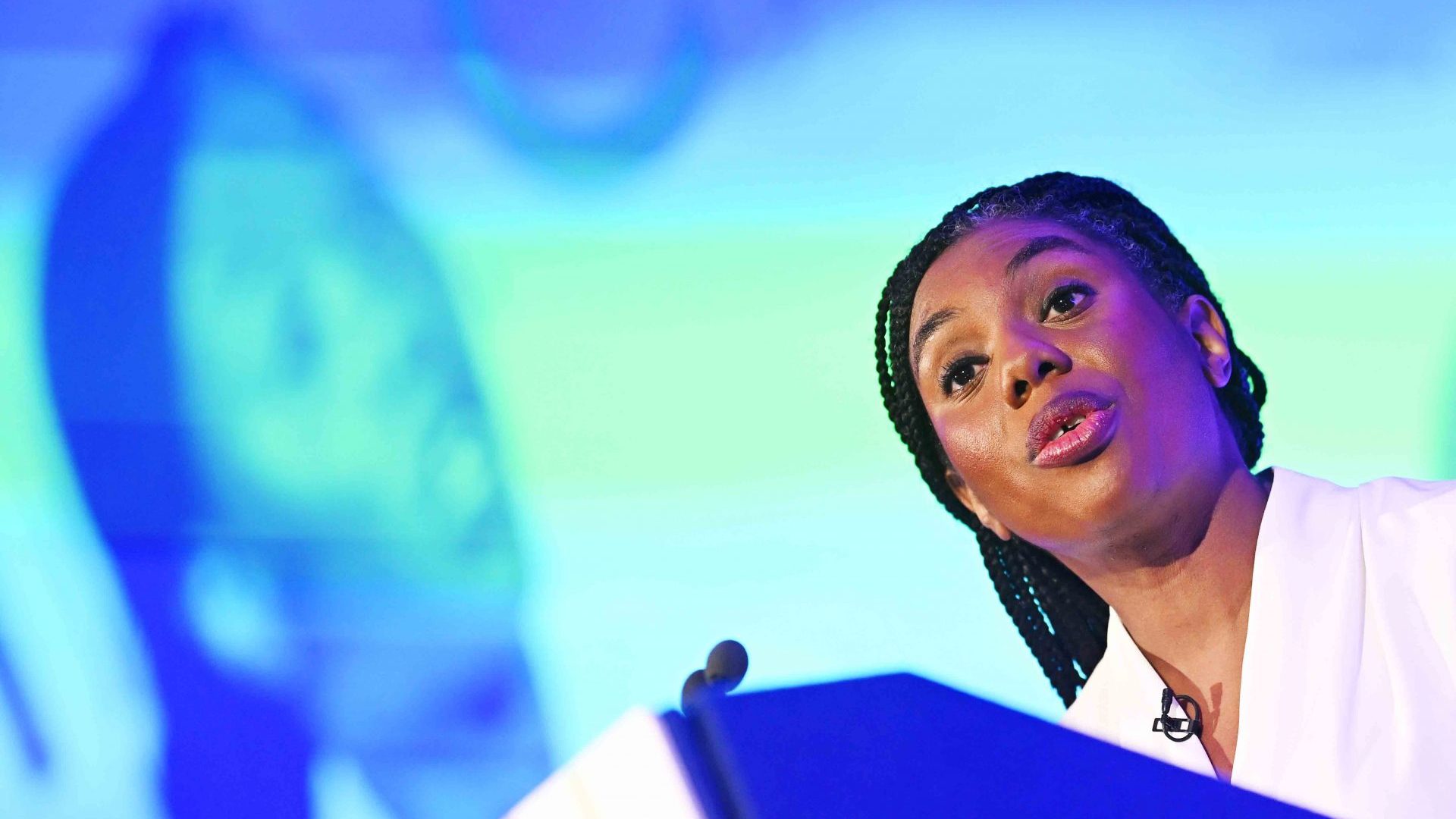Amid the twin geopolitical and tariff crises inflicted on us by Donald Trump, Millennials and Gen Z-ers are having to learn something that we, who grew up in the aftermath of the second world war, have always understood. Freedom of action in the world comes to countries who possess armed force and consensus around a national story.
On the eve of the war, in his play This Happy Breed, the writer Noël Coward summed up the attitude that would sustain the British people from the blitz to VE Day. In its final scene, a lower-middle-class south Londoner delivers a soliloquy to his newborn grandson:
“The ordinary people like you and me know something better than all the fussy old politicians put together – we know what we belong to, where we come from, and where we’re going. We may not know it with our brains, but we know it with our roots.”
Since the Trump-induced crisis hit us, I’ve been wondering to what extent any of us can make this claim.
At the extremes we are a divided country, with Islamists and white racists in a mental state of civil war with one another; with refugees reduced to pariah status in the popular press; and with all kinds of disinformation proponents – including the US vice-president and the world’s richest man – operating in our information space, alongside the familiar cast of Chinese, Russian and Iranian bots.
And because friction sells newspapers, the culture war has become the leitmotif of the opinion columns, the podcasts and the Substacks even of mainstream journalists. We are, in short, punch drunk on divisiveness, to an extent the Labour and Liberal Democrat leaderships recognise, but can do little about – not least because the Tory, Reform, SNP and Plaid leaderships seem determined to use every issue as a cultural wedge.
Is there consensus on what we belong to? Not between the centre and the extremes: Nigel Farage gets paid good money to disparage everything about this country. Tommy Robinson gets his attacks on the British rule of law and criminal justice system amplified by global disinformation networks. Meanwhile, an alliance of Islamists and left wing antisemites make the outrageous claim that the UK is “responsible for genocide” in Gaza.
Is there consensus about where we come from? Actually, in a bizarre confirmation of the horseshoe theory, the extremes agree: we come from a 400-year experiment in white racist empire building. One side thinks that was brilliant, while the other thinks it exempts them from showing any affinity with the UK’s national interest today.
Is there consensus about where we are going? There is not. Reform, currently scoring above 20% in the polls, wants to align the UK strategically with Trump’s isolationism and protectionism, while the Lib Dems, Greens and nationalist parties want to align with Europe.
Labour, its voice paralysed by the government’s duty to use diplomatic language, can’t even explain to its most loyal voters the true nature of Trump’s perfidy.
From now on this country’s security will have to rely on military coalitions of the willing, and on an economy re-industrialised sufficiently to convince Russia that we can sustain ourselves in the face of aggression.
It is likely, and in our national interest, that we will have to extend our nuclear deterrent to our European allies – or see countries like Ukraine and Poland seek their own nuclear weapons. And it is certain that we will need to spend more on defence.
I am confident that, at Westminster, a broad political consensus can be established around rearmament, deterrence and a security-focused growth and energy strategy.
I am not confident that such a strategy will be either widely accepted or even understood. Pollsters report that, above all among the young, there is no appetite for even a minor increase in defence spending, no real understanding of the danger Trump poses, and no consensus about what our national story actually is.
Until we address this, the government can produce all the shiny national security strategies it likes, and the defence community can attend any number of well-heeled conferences, but without a consensus about who we are, where we come from and where we’re going, none of it can be actioned.
In Coward’s play, the soliloquy ends like this:
“We ’aven’t lived and died and struggled all these hundreds of years to get decency and justice and freedom for ourselves without being prepared to fight 50 wars if need be – to keep ’em.”
Robert Donat, the actor originally chosen to say these lines in the wartime movie version, refused the part – because he thought the speech embodied the hubris that had got Britain into the war. There are probably many among Gen Z who might think the same now.
But Coward understood that what was about to happen was an anti-fascist war. The only thing that was going to unite a country divided by class, much in the same way we are divided by region, income and ethnicity, was if everyone could sign up to an overarching narrative.
As we approach the 80th anniversary of VE Day, the starting point of every conversation I want to have with young people is the sentiment in Coward’s play. We are fighting fascism on all sides. We did it before. We can do it again.




